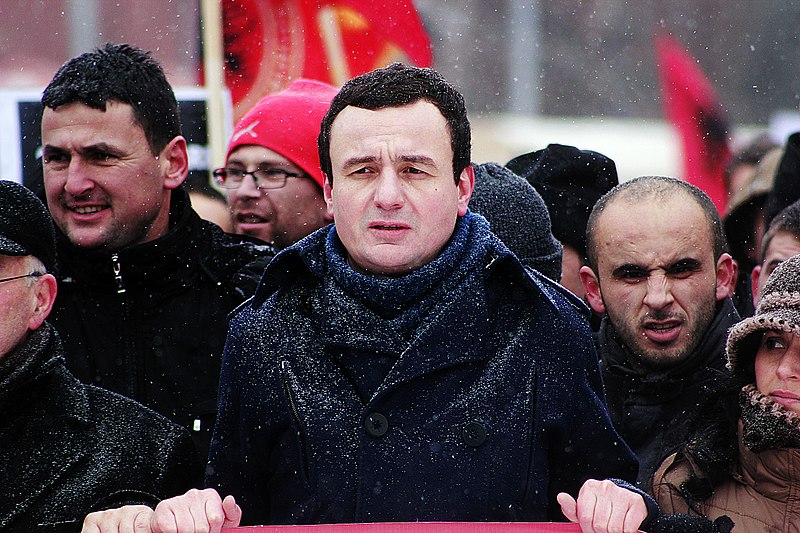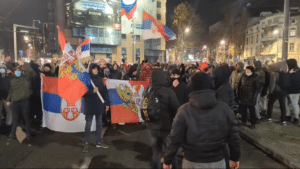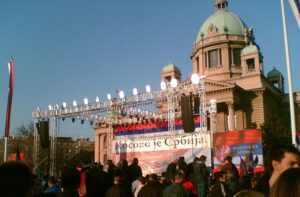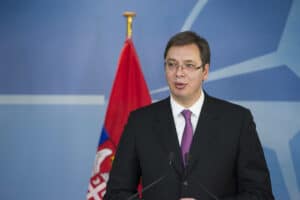Albin Kurti in 2013: AgronBeqiri
On 23 April, elections took place in northern Kosovo in four municipalities. It recorded the lowest turnout ever in the country’s history at just 3.47%. Only 1,567 people voted out of the 45,000 eligible voters. Despite the low turnout, the results are considered legally valid, as there is no minimum turnout rule for the vote. The Central Election Commission announced that Prime Minister Albin Kurti´s Vetëvendosje (Self-Determination) won in Mitrovica North and Leposavic while the Democratic Party of Kosovo (DPK) won in Zvecan and Zubin Potok.
Boycott
Pro-Serbian political parties boycotted these local elections, resulting in the incredibly low turnout. The voting districts are largely inhabited by Kosovar Serbs. Serbian List, the largest party of Serbs in Kosovo announced the boycott of the elections, and Serbian institutions made numerous calls for Kosovar Serbs to do the same. They stated: “We call on Serbs in the north of Kosovo to remain calm on April 23, and not be deceived by the provocations of the Albin Kurti regime, whose sole purpose is to drive the Serbs out of northern Kosovo by holding these elections”. Also the leader of the Party of Kosovo Serbs (PKS) Aleksander Jablanovic, announced a few days before the election that his part had withdrawn from election in Leposavic munipality on the grounds that there were no adequate conditions for holding them. The Chairman of the Central Election Commission (CEC), Kreshnik Radoniqi said: “The CEC has provided the opportunity and conditions for all citizens with the right to vote in these municipalities to use their constitutional right to elect their representative and democratic institutions”. Kosovo’s Prime Minister Albin Kurti responded on the low voting turnout by saying: “The boycott was imposed by the threatening campaign of official Belgrade and its criminal tools on the ground in the North”.
The voting took place after the mass resignation in last November of Serb officials and local politicians over Pristina’s decision to make it mandatory for Kosovo cars to display Kosovo plates. The four municipalities have been without mayors since November when the officials resigned Serb lawmakers, prosecutors and police officers also abandoned local government posts at the time. The tensions simmered down between the two countries when both leaders agreed to back a proposed European Union plan for normalization of relations The elections were planned to take place on 18 December 2022. However, due to protesters blocking roads and border crossings, Kosovo postponed the local elections, in an effort to defuse the tensions.
Reactions
After the election, spokesperson of the EU, Peter Stano, published a statement saying the regret “that not all parties and communities made use of their democratic right to participate and vote in the elections”. They further added “These elections do not offer a long-term political solution for these municipalities. This can only happen through permanent return of Kosovar Serbs to the institutions, and for Kosovo to enable this return”. However, Serbian President Aleksander Vucic praised the vote boycott by the Kosovo Serbs, a day after the elections. He said it represented “a peaceful political uprising” against their “occupiers”. He further stated “Our people in Kosovo have shown in which country they want to live”. There is a long road ahead for the Pristina Government to regain trust in the Northern Kosovo municipalities, as these elections have evidently shown.
Author: Manouk Bronzwaer



